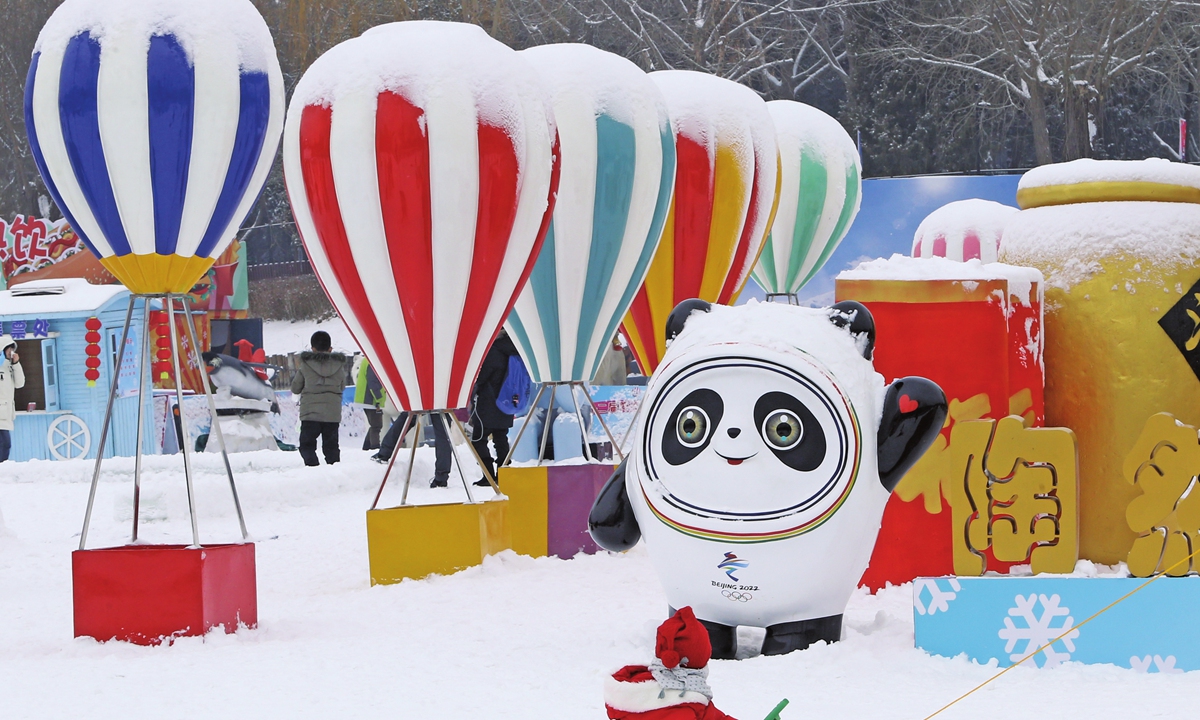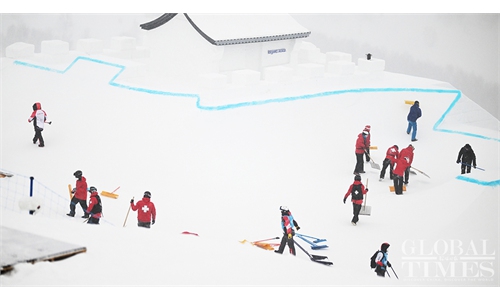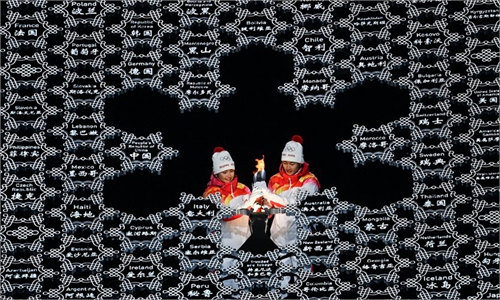
Official mascot Bing Dwen Dwen of the Olympic Winter Games Beijing 2022 Photos: IC
Winter used to be the downtime for farmers in China, but the Beijing 2022 Winter Olympics injected vitality in many rural villages, such as by growing local ski resorts to increase their incomes and empowering the country to push forward the drive of rural revitalization.As an integral part of the Chinese 14th Five-Year Plan (2021-25), rural revitalization has seen a boost as Chinese provinces from north to south are striving to develop winter sports and tourism amid a nationwide Olympic fever.
Li Guofu, owner of a small ski field in the town of Huancheng, Northeast China's Jilin Province, said the number of tourists visiting his place has tripled this winter compared with previous years, thanks to the Beijing Games.
Living in a town heavily relying on grain production in the rust belt of northeastern China, Li told the Global Times on Wednesday that all of the workers were recruited from neighboring villages as local farmers usually remain idle in winter.
"In previous years, I only hired 20 people, but this year I hired at least 35 due to the growing number of domestic tourists. Their monthly salary also jumped from less than 3,000 yuan ($473) to 3,500 yuan," Li said.
Working at the ski resort for three months would bring a family at least 10,000 yuan - a handsome contribution to bettering their livelihood, he noted.
While the Beijing 2022 Winter Olympic Games are going on, China's craze for winter sports and snow-related tourism isn't restricted to the country's northern provinces. Some ski resorts in southern China also saw influx of tourists.
Wang Linbin, a deputy manager of Shanglianggang Resort in Ningbo, East China's Jiangsu Province, told the Global Times on Wednesday that the Beijing Games lifted people's passion in southern China to participate in winter sports. The effects will be profound and will outlast the Olympic Games.
"Tourist volume at our ski resort increased by 30 percent compared with previous years, and our maximum daily capacity was expanded to 100,000 guests from 60,000 previously," said Wang.
Due to the surging number of skiing enthusiasts, Wang said he had to hire more workers from towns nearby.
"Half of our permanent workers and all temporary workers come from nearby villages and towns," Wang noted, adding that some villagers near the resort could sell their agricultural products to increase income.
Swarms of urban tourists visiting ski resorts, which usually sit in rural or mountainous areas, also drove demand for homestay facilities in villages.
According to statistics sent by guesthouse booking platform Tujia to the Global Times, guesthouse booking orders surged from last November and saw spikes in Beijing, Hebei, Jilin and the Xinjiang Uygur Autonomous Region.
Guesthouse bookings around the Jiangnan Tianchi ski resort in East China's Zhejiang Province rose six times during the Spring Festival holidays compared with last year, and bookings at the Shennongjia international ski resort in Central China's Hubei doubled, Tujia said.
Seeking to consolidate the hard-won achievements of poverty alleviation and push forward the modernization of rural areas, Chinese government recently revealed a plan to develop tourism industry in the Taihang Mountains, covering a total area of around 107,000 square kilometers in provinces including Hebei and Shanxi. The plan vowed to realize more than 10 per cent of annual tourism revenue growth rate.
The plan vowed to realize more than 10 per cent of annual tourism revenue growth rate. It mentioned ice and snow tourism is a key part of the country's 14th Five-Year Plan (2021-25).




